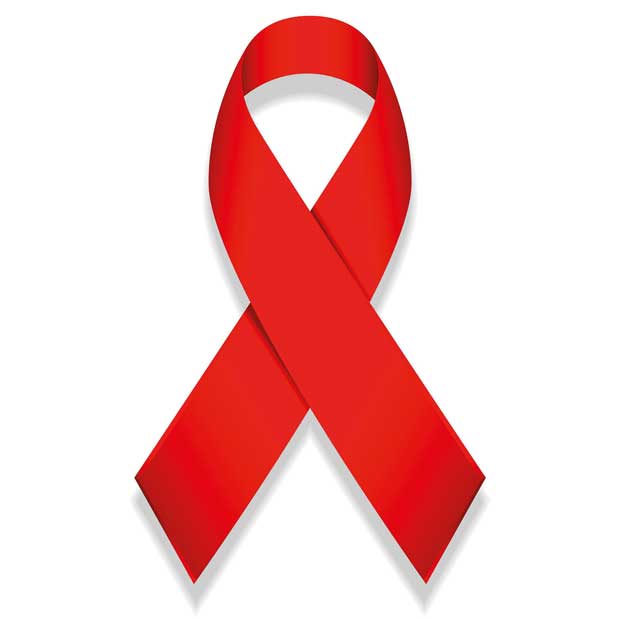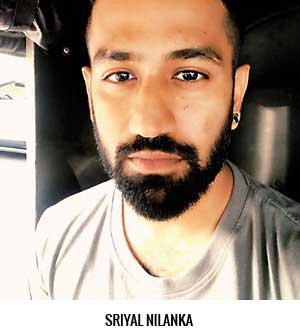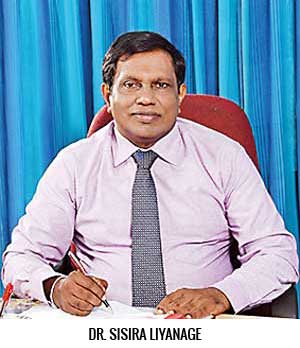Reply To:
Name - Reply Comment
Last Updated : 2024-04-20 00:00:00

Today is World AIDS Day. Millions die of AIDS every year in many parts of the world. According to the World Health Organisation, HIV continues to be a major global public health issue and has so far claimed more than 34 million lives.
Definition
The Human Immunodeficiency Virus (HIV) causes an infection that can lead to acquired  immunodeficiency syndrome, or AIDS, the Director of National STD/AIDS Control Programme Dr. Sisira Liyanage said. AIDS results in a progressive failure of the immune system leading to potentially fatal infections and cancers. The last stage of HIV infection is AIDS.
immunodeficiency syndrome, or AIDS, the Director of National STD/AIDS Control Programme Dr. Sisira Liyanage said. AIDS results in a progressive failure of the immune system leading to potentially fatal infections and cancers. The last stage of HIV infection is AIDS.
“But having HIV doesn’t mean you have AIDS. With treatment, many people with HIV are able to live long and active lives,” he said.
Is there a cure ?
There’s still no cure for HIV. But, once the virus is identified, the patient could start taking treatment, so that the virus can be made undetectable, Dr. Liyanage said.
He said that effective treatment is provided by the clinics operated across the country by National STD/AIDS Control Programme. The treatment supports in reducing and weakening the HIV virus and it automatically strengthens the immune system.
According to Dr. Liyanage, the majority of HIV patients belong to the age group between 25-45. He said that there is also HIV prevalence among the age groups between 15 and 25.
He said that more than 1.1 million testing sessions have been carried out by the Health Ministry and it (Ministry) hopes to increase the number of testing sessions in 2018.
Continual treatment
He urged patients to continue with the treatment and not be influenced by misconceptions.
“Some people stop treatment and start Ayurveda treatment on the assumption that the virus would be cured completely. It is a well-known fact that there is no cure for this disease, but only long-term care and medicine. Some people come to us after the virus worsens due to the consumption of various so-called medicines,” he said.
 Speaking about the relationship between prostitution and spread of HIV, Dr. Liyanage said that 93% of sex workers in Sri Lanka are using protective methods (condoms). He said that if someone says HIV can be eradicated by banning prostitution, it is nothing but a distant dream.
Speaking about the relationship between prostitution and spread of HIV, Dr. Liyanage said that 93% of sex workers in Sri Lanka are using protective methods (condoms). He said that if someone says HIV can be eradicated by banning prostitution, it is nothing but a distant dream.
“All what should be done is to enhance the education of people regarding sexual health and sexual responsibility,” he said.
Discrimination of patients a huge problem
 Sri Lanka is a country that boasts of cultures and traditions. Despite having been recognized as the country with the best health service in South Asian region, HIV/AIDS is still a taboo topic in the Sri Lankan society. A recent example for this kind of practice is the incident where a boy who was marginalized by the local community on the assumption that he was infected with HIV because there was speculation that his father had died of HIV/AIDS.
Sri Lanka is a country that boasts of cultures and traditions. Despite having been recognized as the country with the best health service in South Asian region, HIV/AIDS is still a taboo topic in the Sri Lankan society. A recent example for this kind of practice is the incident where a boy who was marginalized by the local community on the assumption that he was infected with HIV because there was speculation that his father had died of HIV/AIDS.
The boy had been debarred from entering school. However, in May 2016, a landmark ruling was given by the Supreme Court prohibiting HIV discrimination in an educational setting following a fundamental human rights violation petition filed by the boy’s mother. Patients living with the virus claim that the social discrimination they have to face is a major concern.
Media and Advocacy Officer of ‘Equal Grounds’ organization Sriyal Nilanka said continuing with discrimination and unfriendly attitudes towards HIV/AIDS patients in the society prevents open discussion and creating awareness on the subject among the general public.
He also said that these attitudes make people reluctant to get tested and prevent patients from obtaining further treatment provided by public health care.
More than 450 people have died of HIV/AIDS in Sri Lanka since 1989
“HIV patients face embarrassment when they visit clinics. Many patients have told us that medical staff poses countless questions inquiring into sensitive personal details, disregarding privacy. They pose such questions with the intention of using the answers for research and similar matters. But, patients don’t like to share information that’s very personal. Sharing such information isn’t compulsory in the relationship patients have with the doctors who treat them. This kind of practice discourages patients from getting tested and obtaining treatment. Some doctors also don’t treat patients kindly. Doctors should understand how mentally unstable most HIV/AIDS patients are. They are already battling self-stigma. Medical staff has a responsibility towards showing humanity to such patients,” he said.
Sriyal said that as people are afraid of being condemned and marginalized by the society, measures should be taken to stop discrimination at all levels.
He said that a country where such practices aren’t prevented will never achieve an HIV/AIDS free certificate.
“There is a lot of work to be done in our society in order to change the lens through which the people look at HIV/AIDS patients. People’s attitudes should be changed,” he remarked.
There are around 4100 people in the country living with HIV
Meanwhile, UNAIDS’ Right to Health Report gives voice to the communities most affected by HIV—including people living with HIV, sex workers, people who use drugs, gay men and other men who have sex with men and young people—on what ‘the right to health’ means. In the lead-up to World AIDS Day on 1 December, UNAIDS has launched this year’s World AIDS Day campaign. The campaign, My Health, My Right, focuses on the right to health and explores the challenges people in the world face in exercising their rights.
“All people, regardless of their age, gender, where they reside or who they love, have the right to health,” said Michel Sidibé, Executive Director of UNAIDS. “No matter what their health needs are, everyone requires health solutions that are available and accessible, free from discrimination and of good quality,” said Sidibe. The campaign reminds people that the right to health is much more than access to quality health services and medicines, that it also depends on a range of important assurances including, adequate sanitation and housing, healthy working conditions, a clean environment and access to justice.
“Check your fiance’s blood report, not horoscope”
Says Sri Lanka’s longest living female HIV patient
“I was simply a 41-year-old mother, who in 1991, received the same news that more than 34 million people had received. I was HIV positive. I had four kids by that time. Hearing that my death was nearing was an overwhelming and scary experience. I didn’t even know what HIV was all about.
“I remarried a man who worked in a shipping line after my ex-husband died. I wasn’t a sex worker. I got this virus from my second husband. I started searching for information about the virus from all possible sources. Doctors told me that I could live for only three more years. On that day in 1991, I felt like I was given a death sentence. I was so afraid of dying and of having anyone find out that I was HIV positive.
“I told my mother, father, siblings and no one else.
I tried several times to contact my husband who was living abroad. I wrote him ten letters for which there were no replies. I don’t know even whether he is still alive.
“I walked into the office of National STD/AIDS Control Programme where I found the solution for all my problems. I could finally get my life on track. I met godlike doctors in the STD/AIDS Control clinic. They gave me hope. My treatments started and now the HIV virus has been brought into an undetectable level.
There are more than 100 school children aged less than 15 who are HIV positive
“There is a typical belief in the society that HIV only happens to “those people.” But, I was just a housewife who lived only with my husband. HIV doesn’t care where you are from and how you met your partner. As long as there is unsafe sex without using condoms, there is a risk for anyone.
“People hate me because I am HIV positive. They don’t touch me because I am HIV-positive. People also think that HIV positive people like me are trying to spread the virus with hatred towards others. It is nothing but a big lie. I share these experiences because I truly care and would hate to hear of new HIV cases. I have experienced that embarrassing
and disheartening period in my life. I don’t want someone else experience that trauma.
“I never knew that such a virus existed. I think the Government should include HIV/AIDS education in the school syllabus because I believe if I had been better informed, I wouldn’t have been trapped in this problem.
“It wasn’t an easy journey, but I have always been determined to live. Now I am the longest living HIV female patient in Sri Lanka. As a 67-year HIV survivor, it amazes me how I made uninformed choices due to lack of direction and support. To be frank with you, I just married the second husband for money and appearance. I thought my kids would have a good future if I married him. Now I regret that decision taken to remarry. What I have to tell all the parents and youth is please check the blood report of the man your son/ daughter, you are going to marry instead of the horoscope” she said.
Does Sri Lanka have an HIV issue?
More than 450 people have died of HIV/AIDS in Sri Lanka since 1989, the year when the island nation identified its first HIV patient. According to the statistics of the National STD/AIDS Control Programme, there are around 4100 people in the country living with HIV. Of the 4100, only around 1650 have been identified and are taking treatment. The data also reveals that there are more than 100 school children aged less than 15 who are HIV positive.
During the first three quarters of 2016, 34 people have died of HIV while 191 new HIV cases have been reported in Sri Lanka. However, during the first three quarters of 2017, 26 HIV deaths have been reported while 209 new HIV cases have been reported in Sri Lanka. Statistics clearly indicate that there is an increase of new HIV cases being reported.
Experts state that rather than holding discussions and forums on World AIDS Day, conducting a chain of strong and effective awareness programmes targeting the general public will be timely as many people are unaware that they are living with HIV.
Dr. Sisira Liyanage said that failing to take the necessary precautions to prevent getting HIV infected can also leave people being more vulnerable to be victims. He emphasized that it’s important for anyone to get tested. He also said that there is still much misbeliefs associated with the virus.
Unawareness of hiv/AIDs
 Lack of sex education and awareness on sexually transmitted infections and prevention among Sri Lankans, especially the youth, are other causes for the rise of HIV/AIDS cases in Sri Lanka, Sriyal Nilanka from Equal Grounds said.
Lack of sex education and awareness on sexually transmitted infections and prevention among Sri Lankans, especially the youth, are other causes for the rise of HIV/AIDS cases in Sri Lanka, Sriyal Nilanka from Equal Grounds said.
“This isn’t being talked even in the media sufficiently. Therefore, the level of education the youth has regarding these subjects is very low. It is the Government’s duty to take measures and enhance the education on reproductive health and sexually transmitted infections and their prevention,” he said.
“Just knowing things in Health books at schools will not change behaviour and attitudes. Adolescence is a crucial period for fostering healthy attitudes and behaviours to protect people from diseases. Therefore, the youth between ages 12-24 should be educated on these subjects. Then, we can protect our future generation from being victims of HIV/AIDS and other sexually transmitted infections. So, sex education must be given appropriately and sufficiently keeping with age and done without further delay. There is an alarming risk that our children will fall victim to these diseases due to unawareness,” Sriyal stressed.
In the journey towards reducing the prevalence of HIV from 0.01% to the overall goal of 0% to be achieved by 2030, increasing public awareness of the fact that HIV is treatable
is a must
Meanwhile, Director of the National STD/AIDS Control Programme, Dr. Sisira Liyanage said that the Health Ministry plans to increase awareness programmes island wide, make people have access to condoms through a comprehensive distribution chain operated in STD clinics and operate family planning clinics, hospitals and pharmacies.
They are already battling self-stigma. Medical staff has a responsibility towards showing humanity to such patients
“In the journey towards reducing the prevalence of HIV from 0.01% to the overall goal of 0% to be achieved by 2030, increasing public awareness of the fact that HIV is treatable is a must. We will also ensure wider use of condoms. Present day school children are exposed to the risk of being victims of HIV/AIDS. The epidemic of HIV/AIDS is now progressing at a rapid pace among the young. Their vulnerability is further heightened by the fact that awareness about the different methods of prevention was rather low. In the Sri Lankan society, most parents are reluctant to discuss this type of issues with their
children at home. Parents must be more responsible and mindful in being comfortable with their own children to explain and teach them of what HIV and AIDS are, and what exposures and risky behaviours can potentially lead to contracting the virus,” Dr. Liyanage explained.
He emphasized that approximately 2350 people are living with HIV/AIDS without receiving any treatment because even they don’t know that they are such patients. He also said that there is another group of HIV/AIDS patients who don’t opt for treatments due to the negative attitude they sport about HIV/AIDS that there is no purpose of obtaining treatments.
“People don’t know that there is long-term treatment. Once the virus is identified, it can be treated. The virus can be brought to an undetectable level with treatment. Educational interventions can make a significant change in people’s knowledge,”
he said.

Add comment
Comments will be edited (grammar, spelling and slang) and authorized at the discretion of Daily Mirror online. The website also has the right not to publish selected comments.
Reply To:
Name - Reply Comment
On March 26, a couple arriving from Thailand was arrested with 88 live animal
According to villagers from Naula-Moragolla out of 105 families 80 can afford
Is the situation in Sri Lanka so grim that locals harbour hope that they coul
A recent post on social media revealed that three purple-faced langurs near t